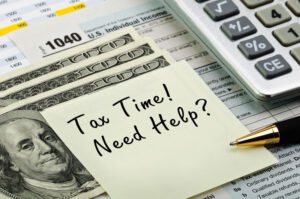Most of us can’t wait to get our taxes finished each year. In fact, the last thing that we want to do once we finish filing is look at any more tax-related documents from that fiscal year. You might be in a hurry to put tax season behind you. However, you shouldn’t rush to toss all of your documents in the bin just because you’ve received your return. You could actually benefit from keeping some of these documents. Keeping documents could help you in the case of a future audit. In addition, the process of filing next time around may be easier if you keep some of these items. Take a look at what you need to know about how to handle tax documents once tax season is over.
Why You Might Need to Keep Documents
You shouldn’t think that you’re in the clear just because you’ve finished filing for the year. The IRS could still notify you that an error has been detected on your return. What’s more, you may actually discover that you’ve made a mistake after the fact and need to file an amendment. You will be thankful that you still have all of your tax documents on hand if you need to go back into your files. The other reason to keep tax documents around is that having access to documents from a previous year could make it easier to file in the future. That’s because some people need to refer to figures on previous returns when filing.
Which Documents Should You Keep?
The general rule across the board is to keep all tax-related documents for a full three years after filing. This rule is in place for two reasons. The first reason is that you have three years to claim any refund that is owed to you. The second reason is that the IRS generally goes back three years when auditing what is claimed on a person’s taxes. Here are some specific types of documents that you might want to keep around for a while after you’ve finished filing your taxes for the year:
- Any proof of income like W-2s and 1099s
- Bank and brokerage statements
- K-1 forms
- Records of spousal-support payments
- Financial records stemming from properties that you’ve purchased, sold or managed
- Investment records related to stock transactions, IRA accounts, retirement accounts and more
It becomes even more necessary to hold on to documents if you claim business-related deductions when filing. That includes things like credit card statements, invoices, mileage logs, canceled checks and more. The general rule is to avoid tossing away anything that proves you paid business expenses throughout the year.
Some Additional Tips to Keep in Mind
You may not always need to keep every document used to file your taxes once you’re done filing for the year. However, you should always keep copies of all of your filed tax returns. This can help you to file more quickly going forward and make it easier if you do need to file an amended return. Don’t forget that documents don’t automatically lose their importance just because you’ve finished filing your tax return for the year. Some documents need to be kept for other purposes. Sometimes creditors and insurance agencies actually require you to keep certain documents even after you’ve finished doing your taxes. It is also important to remember to dispose of your old financial documents wisely. Shredding documents before placing them in the waste bin is always a smart idea.
SOURCES:
https://www.irs.gov/businesses/small-businesses-self-employed/how-long-should-i-keep-records









